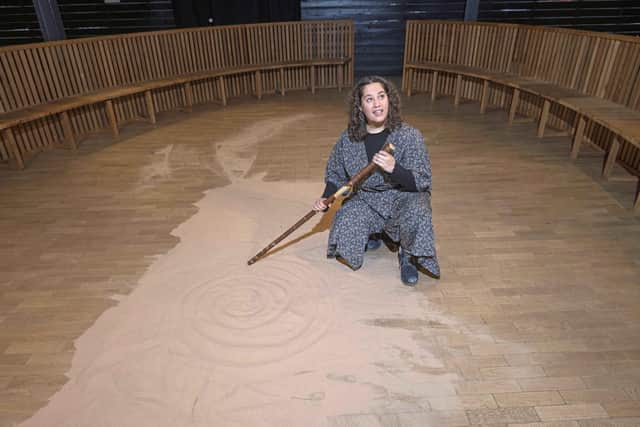Walden: Theatre production and installation to highlight stories of those that went before Thoreau
On 4th July 1845, a few days before his 27th birthday, Henry David Thoreau began living in a hut he had built in Walden Woods, on the outskirts of Concord, Massachusetts. As novelist John Updike observed, Thoreau was by this time, “young, but old enough to have accomplished more”, so what made this Harvard-educated son of a successful pencil manufacturer decide to live in the woods, and why does Walden – the book he wrote about his experience – remain so popular and relevant more than 150 years after its publication?
Thoreau wanted to find time to write, something he found difficult while working for the family’s pencil manufacturing business; he was also mourning his beloved older brother, who had died of tetanus. In the book he says he “had an urge to simplify, to have only two or three things to concern myself with,” and it is this appeal to simplicity that gives Walden its continuing relevance. He complains that society “lives too fast. Men think…it essential to…have commerce, to export ice, talk through a telegraph, and ride at thirty miles an hour.” While we may now worry about being constantly connected to the internet and travelling at hundreds of miles an hour, the central question of how we should live remains powerful and relevant.
Advertisement
Hide AdThe book is both of its time – a time when the American Civil War was brewing – and modern in its embrace of alternative philosophies, concern for the environment and its central theme of self-sufficiency. A modern reader can find much to enjoy in Thoreau’s writing, but it is his deep connection to nature which shines through. After 26 months, Thoreau ended his “experiment in simple living.” What he learnt is familiar from anthologies and t-shirts, but is still powerful: “If one advances confidently in the direction of his dreams, and endeavours to live the life which he has imagined, he will meet with a success unexpected in common hours.”


Thoreau’s principles led him to refuse to pay his taxes in opposition to both the Mexican-American war and slavery. He was arrested and jailed, though only for one night as, to his annoyance, someone paid his arrears. This experience led him to write Civil Disobedience – a phrase he coined – which was hugely influential in the 20th century, especially for the American Civil Rights Movement.
In 2006, I came across Walden at a charity book sale. I recognised the title, but knew little else about it. The man selling it apologised that it was £2 – twice the price of everything else – explaining that this was because it was old; I decided I’d risk it. Reading it led me to collaborate with environmental artists Sans façon on a stage adaptation of Walden, made for non-theatre spaces such as galleries and trying to fulfil Thoreau’s command to “simplify, simplify, simplify.” The audience sits on a simple, beautifully-crafted oval bench made from American pine, creating an intimate performance space. It toured widely and very successfully, including an Edinburgh Fringe run at the Dovecot gallery in 2009.
In recent years, there has been more focus on the links between Thoreau and the defining issue of his time – the abolition of slavery. Thoreau was an abolitionist – active, though safely ensconced in New England. In a journal entry written as he was finishing Walden, he berates those Bostonians who had recently voted to send escaped slaves back to the South. Concord-born academic Elise Lemire has researched the history of slavery in Thoreau’s home town and her book Black Walden traces the history of the formerly-enslaved who lived in Walden Woods in the early 19th century. Thoreau names three – Cato Ingraham, Zilpah, and Brister Freeman – pointing out the traces of their existence he finds, but there were more. The previously little-known history of Black Walden is now more visible, with locations marked and celebrated, though subject to less razzamatazz than the reproduction of Thoreau’s hut.
In revisiting Walden for performances at Edinburgh’s Fruitmarket this month, it felt important to acknowledge the voices of these less visible residents of Walden Woods. An open call for artists from the global majority to propose a response to Walden resulted in Harvey Dimond being commissioned to create a new work. Taking its title from Thoreau’s description of slavery as having “so many keen and subtle masters”, it explores black ecologies with five large suspended banners and a recorded conversation made up of words from both Walden and Black Walden.
Walden’s exploration of solitude and self-sufficiency has been given an unexpected timeliness by everyone’s recent experience of enforced confinement; and Harvey Dimond’s so many keen and subtle masters brings the previously hidden experience of Brister Freeman and the others into direct conversation with Thoreau’s account of his life in the woods.
Nicholas Bone is the artistic director of Magnetic North Theatre. Walden is at the Fruitmarket, Edinburgh, from 29 March until 1 April. Tickets available at www.fruitmarket.co.uk